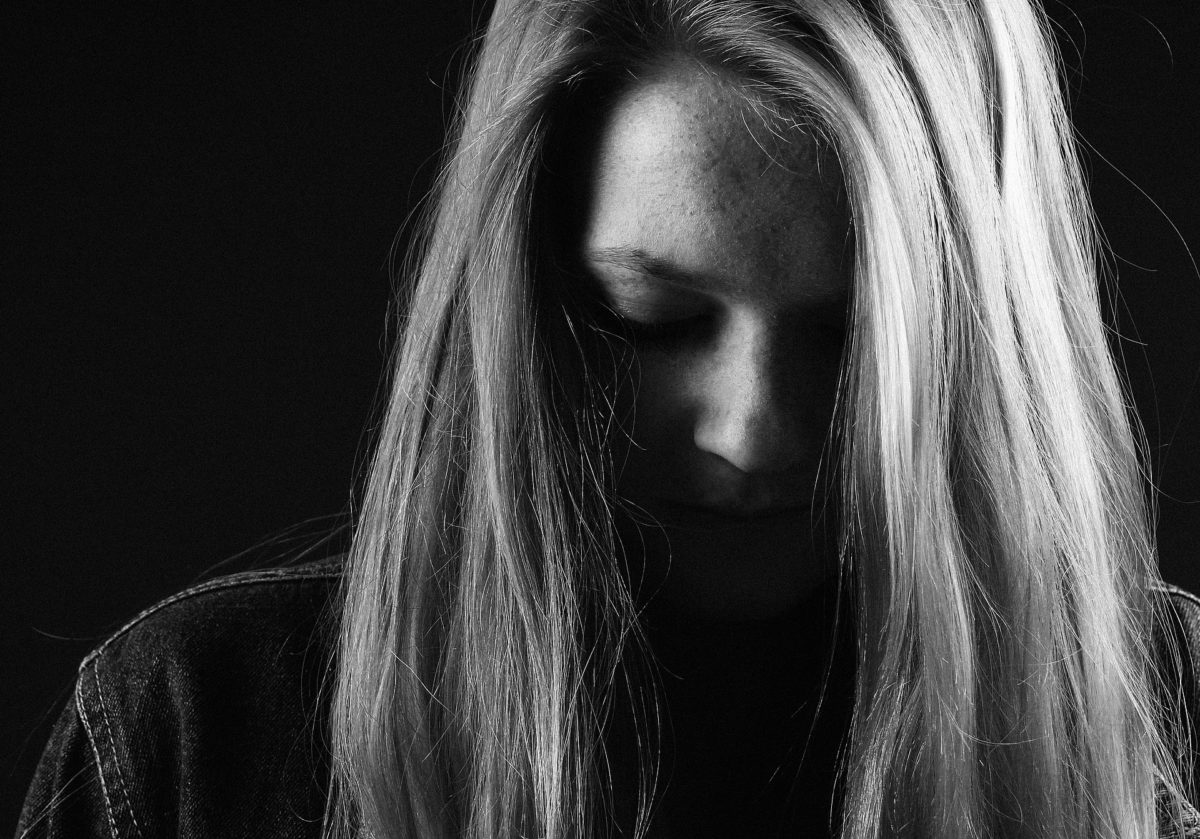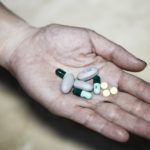
03 Apr Is Heroin Addiction Treatable?
Table of Content
It should be no surprise to you that we are currently in the middle of an escalating opioid crisis with countless families throughout the United States suffering because of the sweeping opioid epidemic. This problem is not just localized either, according to NIDA (National Institute on Drug Abuse) an estimated 25 to 35 million people abuse opiates on an annual basis. Of these, an estimated 2,000,000 Americans struggle with opioid addiction at any given time, with roughly 10% of those dealing specifically with heroin addiction.
Substance abuse and addiction are nasty things. They eat at the foundations of a person’s mind, spirit, and soul and poison lives and relationships. As the substance takes ahold of the abuser, neural pathways form casting the chains of addiction around the abuser, drawing them tight. Naturally, the abuser’s orbit of priorities, the things he cares about, are shifted. What was once central, like a hobby, school, a relationship, a job, are all left by the wayside in favor of the euphoric pleasure of massive dopamine releases that come with drugs.
Within the realm of drug abuse, no siren’s song is as intoxicating as the kiss of Heroin. It is one of the most addictive and potent substances known to man and one of the more difficult drugs to recover from. If you or someone you care about is battling heroin addiction, you likely have seen the havoc it has wrought in his or her life. You have seen how it has altered their personality, killed their motivation, wrecked their body and changed them for the worse. Maybe they have said horrible things, called you names, maybe they have done terrible things, lied, stolen, cheated. Perhaps you have reached a breaking point or several breaking points in your relationship and come to the conclusion that all is lost, there is no return for the prodigal son.
If that is you, it is entirely understandable; heroin transforms good, honest, loved ones into strangers, thieves and liars. Despite all that, despite the hard road ahead, heroin addiction is absolutely treatable. It would be naïve to believe it an easy path or one that did not have slip ups and dead ends, but with your support and proper medical care, recovery is possible. Below we will discuss the various means for combating heroin addiction.
Three Phases of Heroin Detox
Heroin detox is understandably a daunting prospect to any substance abuser, largely because all of the symptoms associated with opiate withdrawal. These heroin abusers have likely experienced many of these symptoms as their habit morphed into addiction and the time periods between uses became shorter and shorter before these symptoms were felt. For opiate users, detox can feel like a hellish nightmare filled with hallucinations, sweats, and other flu-like symptoms. It is extremely uncomfortable and potentially fatal which is why it is wise to detox in a medical facility and under professional supervision. Do you know how long it takes to detox from heroin? Below we have covered the three stages to Detox that a heroin user must undergo to complete the detoxification process.
Stage 1 – The Evaluation
The initial stage of detox begins with the heroin user meeting with medical professionals for a thorough physical and mental evaluation. The goals of this meeting are to create a specific treatment plan tailored to the user, doing so grants them the best opportunity to succeed and to handle effects of the heroin withdrawal timeline.
At this time, medical professionals will diagnose and thoroughly seek to understand the manner and extremity of the addiction. This diagnosis includes a blood sample, a physical, a psychological evaluation and a variety of other tests intended to gauge addiction levels and to make sure that the patient is not currently using. This stage also allows them to discover any underlying medical problems, mental health issues, or co-occurring disorders that must also be dealt with.
Stage 2 – The Stabilization Period
This is what most consider when thinking of detox. At this time, the actual detoxification of all substances from the body must occur. As the body is cleansed of their traces, the patient undergoes a series of withdrawal symptoms that range in potency and frequency. Heroin withdrawal symptoms include:
-
- Agitation
- Anxiety
- Cramping
- Cravings
- Depression
- Diarrhea
- Hallucination
- Hypertension
- Light Sensitivity
- Muscle spasms
- Nausea
- Noise Sensitivity
- Rapid Heart Rate
- Severe Pain
- Sweating
- Temperature Swings
- Tremors
Stage 3 – Guiding Patient into Treatment
Now that a user has been clean of heroin for anywhere from a week to 90 days, they are at a place where they can actively battle cravings or relapse. The final, and what many medical professionals consider to be the most important, step involves preparing a heroin user for the outside world, giving them tools to combat their addictions. This involves enrolling in drug rehabilitation programs and looking for ways to get involved with the community by building healthy habits.
Inpatient vs. Outpatient Treatment Programs
Medical assistance and monitoring are vital to safe and long-term recovery from heroin addiction. As mentioned, the detoxification process is intense so you should consult with your doctor whether you desire inpatient or outpatient treatment programs.
Inpatient Treatment
Inpatient rehab is also known as residential care, whereby, the treatment program lasts a period of 30, 60, or 90 days and the heroin user remains on the facility’s grounds the duration of their stay. The patient undergoes the stabilization period in the medical center where they are closely monitored and nurtured throughout their stay, but especially during this initial phase. This round the clock care may include any form of assistance including medications meant to combat the symptoms of withdrawal. After the patient has been weaned off their heroin dependence, the focus of treatment pivots to the educational and psychological portions.
During this time, patients discuss their addiction and self-evaluate with professionals and other addicts. This behavioral therapy and skill development prepares them for the battle ahead and allows the user to do so in a completely stable and drug-free environment. They readily encourage users to bond and share their experience with others in recovery, people who know and feel the same way and can relate. There are a ton of activities and therapies meant to ease this passage of time and to help their patients develop healthy minds, bodies, and souls. There are a whole host of additional factors that make inpatient a great option.
However, the main thing that might detract from one’s desire to enroll in such a program might involve money or time commitment. Obviously, these types of treatments are cost intensive; they include various amenities, room, board, medical services, counselors, etc. On top of this, you are required to stay there for an extended period, which means work, school or life have to be put on pause. If money or time is an issue for you, consider outpatient treatment.
Outpatient Treatment
Outpatient treatment is generally a shorter duration that often concludes post stabilization. As soon as the body is free of substances, a patient is released to their home where they can fulfill their obligations. They will return either daily or on a weekly basis for one-on-one therapy or group therapy sessions and have a psychiatrist to consult with if they need medication for withdrawal.
For people who are struggling with money, but have a strong support system around them, I.E., family and friends, this is a viable option for someone who cannot afford to go away for a month. That said, the odds of relapse are much higher for those who chose outpatient. The reason for this is obvious seeing as they had less rigid structure and are more able and tempted to return to their heroin addiction.
Create a Heroin Relapse Prevention Plan
As you reach the final phase of heroin rehab, you and your team will create a roadmap for treating heroin addiction. This includes listing your personal triggers and stressors and detailing ways to combat them. Addressing these things, analyzing your heroin addiction helps you spot indicators of an impending relapse. This plan should be shared with those who will be keeping you accountable, including friends, family members or others in recovery. While it does not need to be written, it is helpful to have a hard copy to review or use when times get tough.
Self Assess
in rehab centers you will have plenty of downtime, this gives you a chance to be bored, to think, your mind free for the first time in a while from opiates. This period of self-reflection can be good and bad, especially when you can objectively take a step back, remove yourself from the situation, and see how much addiction changed you. As you think about it, consider questions such as, how your addiction started, how it got worse, who you used with, where you used, where you got your heroin from, how often and how much did you use, what did that do to your mental and physical health? By identifying the factors surrounding your heroin use, you will be able to take preventative steps to treat your heroin addiction.
Identify Stressors and Triggers
Stressors are a psychological or physiological primer that causes a person to release stress hormones. They can be related to work, school, relationships or various other factors in life and when activated, can lead to a state of mental relapse. Triggers are people, places, things or experiences that might tempt you to use again. Knowing these things can help you avoid or address them if unavoidable. Share these things with your loved ones so that they too can be on the lookout.
Go to a group
Your odds of preventing relapse are astronomically higher the more often you attend your group. Support systems are vital, especially for addicts, to combat addiction and to prevent relapse. Surrounding oneself with others who can support, challenge, and keep one accountable is the only way to treat heroin addiction. You will NEVER win this fight on your own; it takes a village. Build healthy relationships with ex-users, with family members, with friends. Be an example and invest in mentor group members who are not as far down the path. Community gives people a sense of place and purpose and in many ways replaces that empty hole that heroin was trying to fill.
Go to therapy
Just as a group is vital for recovery from heroin, so too is regular self-assessment with the help of a medical professional. Having a one on one coach who has a wealth of knowledge and experience treating heroin addiction is a valuable resource that should not be ignored. They have seen it all and helped others achieve that which you so badly desire to accomplish. Sometimes it may just feel like talking, but talk can be extremely therapeutic.
Set healthy goals and habits
Create routines and healthy habits in your life. Help your brain by building new neural pathways. Keep regular sleep hours, at least eight hours a night optimally. Fight boredom, the enemy of all addicts, by exercising, eating healthy, working out, giving back to the community, picking up a hobby, joining a club or a variety of other activities. Challenge yourself with a new book. Take a class online. Learn how to watercolor. Search for drug-free ways to bring joy, beauty, and laughter into your life.
Prepare for relapse
One out of every two addicts relapses, and the numbers are higher for heroin users. Do not let this bring you down or discourage you from your goal to treat heroin addiction, rather, use it as a way of understanding that this road is complicated and relapse does not mean you have reached the end of the line. Since the odds are high that you do slip up, prepare a backup plan: who will you call, what will you do, what treatment will you get, what steps will you take to prevent it turning into a full-blown relapse into addiction. Once you have charted out these steps, use it as motivation to not become a statistic.
Conclusion
Heroin addiction may seem like a life sentence, but it is not. Heroin addiction is treatable, especially with the help of a support system. If you are struggling with heroin addiction, reach out to those close to you, reach out to medical professionals and begin by taking the initial steps down the road to recovery, the road to freedom.
Whether it is a heroin addiction or any other substance abuse issue, Georgia Drug Detox can help you down the road to recovery. If you want to learn how to tell if your child is abusing heroin, we can also advise you on signs to look out for.We will provide you or your loved one with the heroin addiction treatment you need in order to overcome your problem. Call us today if you are addicted to heroin.
Sources:
“Can Heroin Addicts Recover?” Recovering Champions. 15 Mar. 2019. https://recoveringchampions.com/can-heroin-addicts-recover/
“Drugs, Brains, and Behavior: The Science of Addiction.” NIDA. 15 Mar. 2019. https://www.drugabuse.gov/publications/drugs-brains-behavior-science-addiction/treatment-recovery
“Heroin Addiction and Treatment.” American Addiction Centers. 15 Mar. 2019. https://americanaddictioncenters.org/heroin-treatment






No Comments